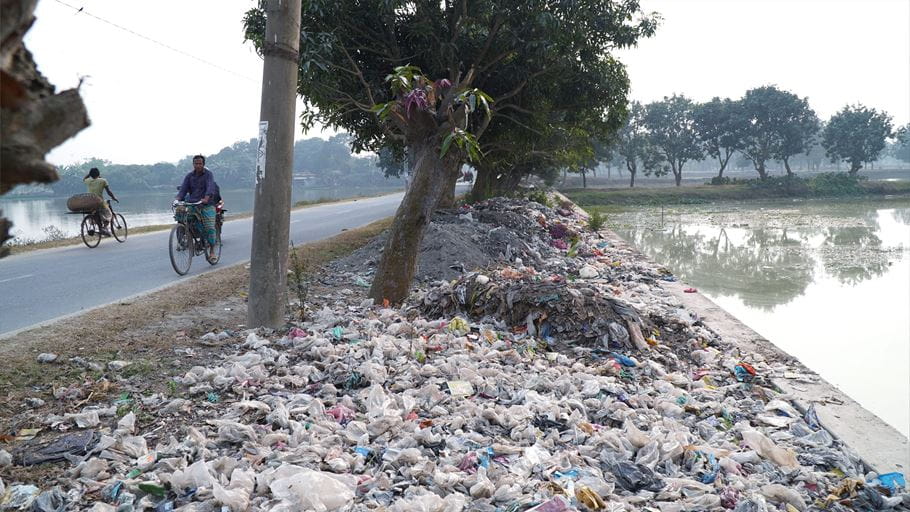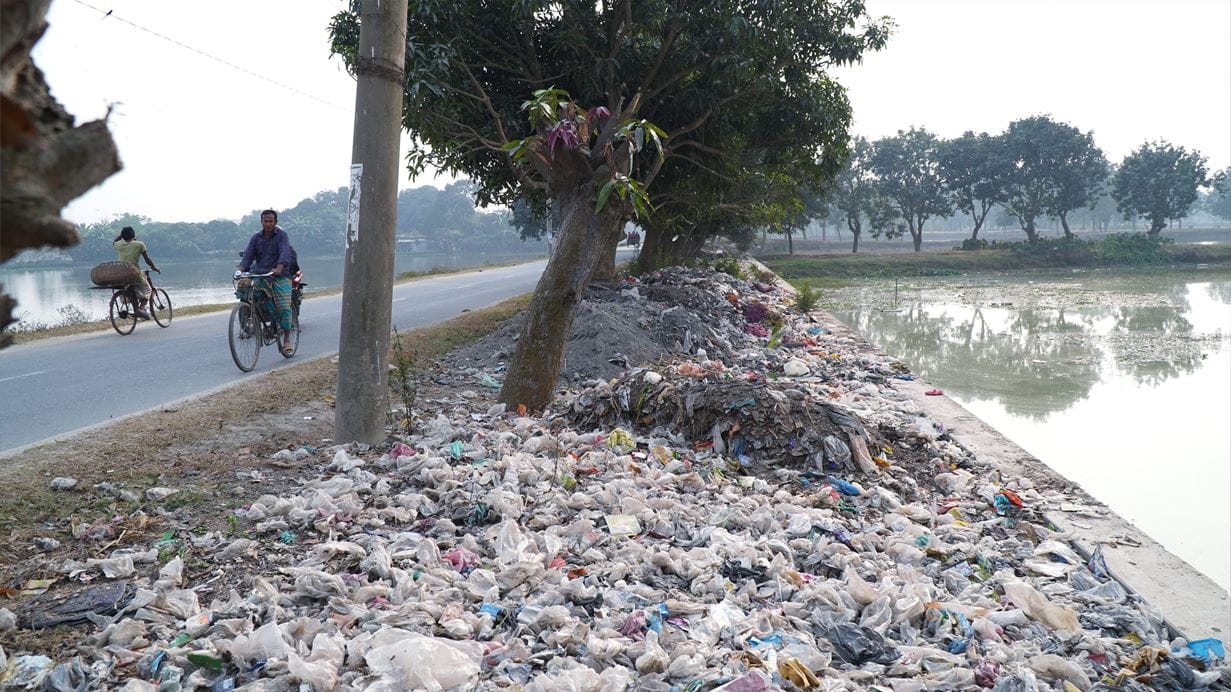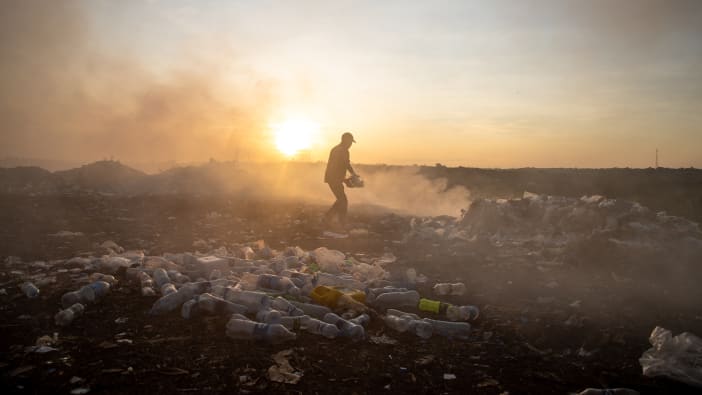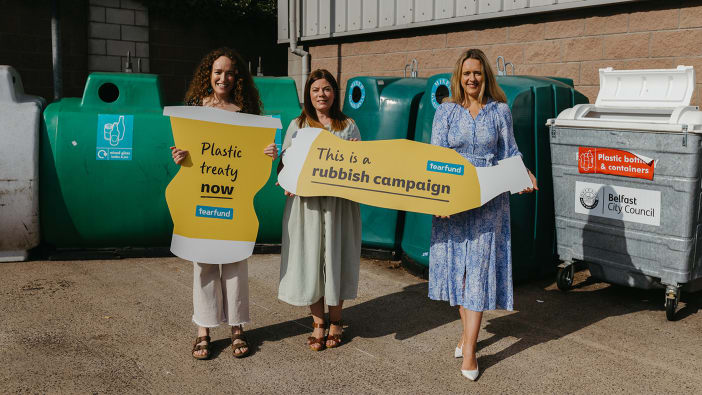Over the past year, Tearfund has been campaigning on plastic waste through the Rubbish Campaign. We’ve been calling on world leaders to ensure the ongoing UN global plastics treaty talks tackle the impacts of plastic pollution on people living in poverty.
In the UK, our plastic waste generally goes into the bin and is immediately out of sight and out of mind. At least, that’s how I used to view my waste. But this changed when I spent three months on a Tearfund volunteer trip in Bangladesh.
I remember standing in the colourfully painted house where we were staying and taking off my make-up with a disposable wipe. I put the wipe in the bin in my room and thought no more of it.
Some hours later, as the sun started to set, I decided to go for a walk around the local streets and came across a small pond littered with rubbish. There were shiny sweet wrappers and crisp packets, but it was something else that caught my eye. I spotted what must have been my make-up wipe.
With no formal waste collection for many in Bangladesh, people have no choice but to dump or burn their rubbish. In our case, it went straight into the pond. That wipe of mine could contribute to the plastics problem for another 100 years, as it slowly breaks down into smaller and smaller pieces.
This moment changed the way I consume. I realised that my waste doesn’t just disappear when I put it in the bin. It continues to have an impact that is often damaging to both people and the planet. Ever since, I have been gradually reducing my plastic waste where I can, for example swapping disposable face wipes for reusable face cloths.
What I saw in Bangladesh is the daily reality for the 2 billion people around the world who have no safe way to dispose of rubbish. This means people are forced to live and work among piles of waste. Burning it releases toxic fumes and makes people sick, dumping it floods communities – all of which causes up to a million deaths each year. That’s equivalent to one person dying every 30 seconds.













